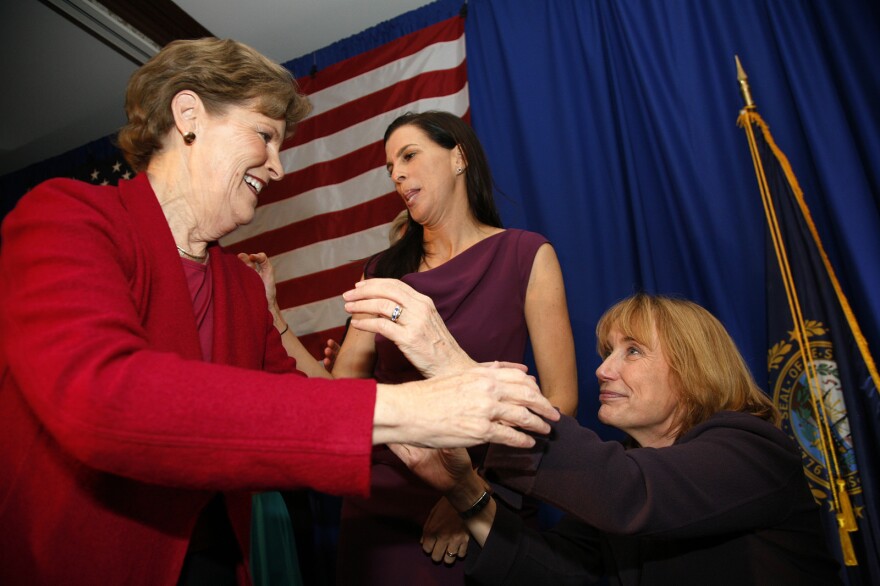A Republican wave may have swept across the country Tuesday night, but the red tide hit a granite breakwater in New Hampshire. Democrats here held three of four seats at the top of the ticket. Strategists are looking closely at what made the difference for Democrats here, and for lessons that can be taken forward.
This election ran against former House Speaker Tip O’Neill’s dictum that “all politics is local”. In this case deep dissatisfaction with President Obama powered the GOP to gains in Congress and the retaking of the Senate majority.
State Republican committeeman Steve Duprey says North Carolina’s Senate race, where Republican Thom Tillis bested Democrat Kay Hagan, provides a useful comparison with New Hampshire's. The same issues were in play in both states– Obama, the threats of Isis and Ebola, even missed committee hearings.
"Kay Hagan voted with president Obama 93 percent of the time while Jeanne Shaheen voted 99 percent. In fact I think that issue was actually more potent in New Hampshire," he said. "Those of us who remember know that when senator Shaheen was elected her chief advertised complaint against Senator Sununu was that he was some sort of toady for president Bush because he voted with the president something like 88 percent of the time, and then that rating came out."
The rating, that is, which found Shaheen voting practically lockstep with Obama.
Duprey argued that all things equal, Brown, like Tillis, should have won. But, he added, there was a uniquely potent factor at work here:
“I think the only difference was that Scott Brown having lost a senate race in Massachusetts and just having become a full-time resident of New Hampshire about a year ago really was the factor,” Duprey said.
A New Hampshire exit poll conducted by the Associated Press bears out the carpetbagger theory. The survey of 2,400 voters found that more than half believed Brown hadn’t lived in New Hampshire long enough to represent the state effectively.
And while massive television advertising played a big role in other, larger states, Patrick Murray who directs the polling Institute at Monmouth university in NJ says New Hampshire voters are more likely to tune out attack ads.
“In New Hampshire you have more of an opportunity to have face-to-face either with the candidates or with a surrogate and so you are much more likely to discount those messages as somebody trying to win you over rather than actually having a real relationship with the voters,” Murray said.
Many credit Shaheen’s long record in New Hampshire politics -- yesterday was her sixth run at statewide office. She's lost only once, and her years of serving voters has created a lasting bond says Ray Buckley, chairman of the state’s Democratic party.
“I think Senator Shaheen has this sort of relationship with the people of New Hampshire, built up a foundation that was able to withstand this national tide,” Buckley said.
Democrats and their allies did have an undeniable edge in money to spend and, observers say, in manpower, on-the-ground organization and steady leadership at the top -- all combining with Shaheen's strong brand to anchor less-well entrenched incumbents... or at least Governor Maggie Hassan and Congresswoman Anne Kuster.
Republican National committeeman Steve Duprey says the national GOP has started investing significant new resources in New Hampshire that will pay off in the years to come. But right now, with the exception of Kelly Ayotte’s Senate win two years ago, New Hampshire Democrats are on a decade-long winning streak when it comes to statewide office.







